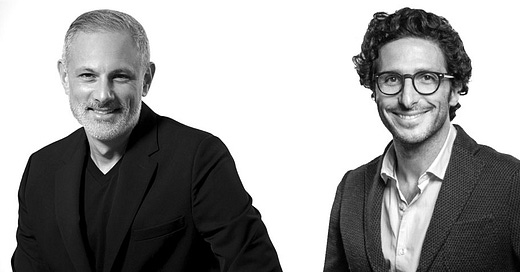The 5 Largest French Tech VC Rounds Of 2020
Mirakl, EcoVadis, SendinBlue, ManoMano, and Back Market. (Honorable mention to Lydia.)
Despite the insanity, 2020 turned out to be a blockbuster year for startup fundraising in France. Those numbers were helped by some big rounds raised by some of the most promising startups the country has produced in recent years.
These mega-rounds were extremely rare until just a few years ago when startups like BlaBlaCar and Sigfox broke through with rounds north of €100 million. Getting more money for so-called scaleups is a priority in France, and there are signs of progress.
According to research firm CB Insights, these were the five biggest French Tech rounds of 2020:
Mirakl - $300M Series D: Founded in 2011, Mirakl helps other companies launch marketplaces. It’s become a powerful platform to enable 3rd-party commerce on a growing range of websites. The $300 million round announced in September was impressive not just for the size, but also for the roster of investors: Permira, 83North, Bain Capital Ventures, Elaia Partners, and Felix Capital. Mirakl has now raised $400 million and has a $1.5 billion valuation. The shift to digital commerce has been accelerated by the pandemic, and Mirakl seems positioned to be the new poster child of French Tech.
EcoVadis - $200M Private Equity: Founded in 2007, EcoVadis provides a collaborative platform that helps companies monitor the sustainability of their complex supply chains. While EcoVadis is not likely to become a household name, the round it raised last January brought its total funding to $235 million. Helping other companies tap into the growing eco-consciousness of consumers seems like a market with a lot of opportunity.
SendinBlue - $160M Series B: Founded in 2007, SendinBlue is another company that has seen growth accelerate during the pandemic. SendinBlue helps automate marketing campaigns for companies, and 2020 saw a big shift toward digital advertising. The company has now raised $197 million.
ManoMano - $139M Series E: Founded in 2013, ManoMano offers an online marketplace for DIY, home improvement, and gardening products. It may sound specific, but the company is seeing annual growth rates of more than 50%. And it’s only in a handful of markets but continues to expand. It’s now raised $350 million and is hiring in France and Spain.
Back Market - $120M Series C: Founded in 2014, Back Market operates a marketplace that makes it easier to find and purchase refurbished electronics from a growing array of factories that repair and restore these gadgets. It offers a strong consumer element by verifying the quality of work and even offering warranties. But it also has loftier ambitions of reducing waste and encouraging more eco-friendly shopping. The latest round brought its total raised to $176 million.
Readers may be wondering, “Hey, what about Lydia?” The P2P payment app is also red hot at the moment. And last month, the company announced it had closed a $131 million Series B round. However, technically the company raised $86 million in December as the second part to a $45 million round raised in January. Under CB Insight’s methodology, it counts those separately.
So, just a technicality and not a knock on Lydia! However you slice it, Lydia had a banner year.
One other interesting note about the 2020 Top 5: All of the companies were founded in 2014 or earlier. The French Tech program launched in late 2013 to raise the profile of the nation’s ecosystem. But this group is a reminder that there was quite a bit of entrepreneurship already happening in France. And some of those efforts are now bearing fruit.
In other news…
Independent analyst Benedict Evans published a slide deck this week that gives an overview of the European Tech ecosystem. The overall thrust isn’t surprising: Europe lags where it should be in terms of entrepreneurial might, but has been making big strides in recent years.


The big picture: Europe theoretically should be a massive market opportunity for French entrepreneurs. But…in reality, it’s still many markets that are not well integrated in terms of culture, language, and regulations.
On the home front, there are some other challenges. As of 2019, the French were less likely to be shopping online than their counterparts in the U.S., U.K., and Germany. In terms of tech adoption, Evans clumps France in with Spain and Italy as countries that are “3-5 years behind.”
The French also spend far less time online (around 100 minutes per day) than the British (more than 250 minutes per day). French companies are lagging in cloud adoption. And the company has produced fewer unicorns.
None of this is fatal. And it’s likely the pandemic has had a big impact on some of these stats.
Still, it’s a clear-eyed look at how far Europe and France have come, and how much further there is to go. President Macron has set a goal of 25 unicorns by the end of his term in 2022. Whether or not the country hits that target, the ambition is certainly there.




